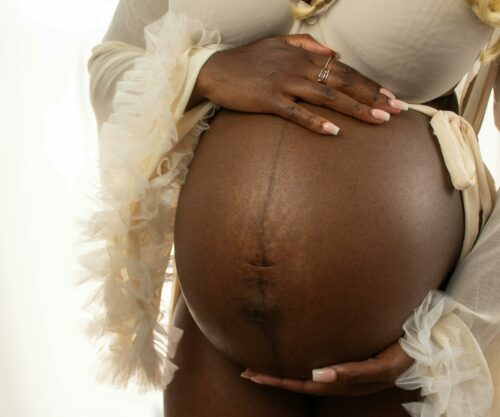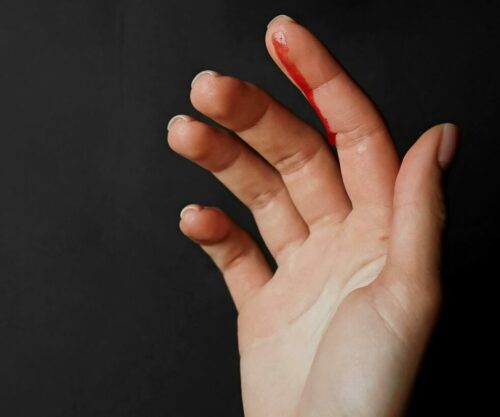
John Legend and his wife welcomed their first baby, Luna last year. Recently the star penned an open letter for Glamour magazine in the US revealing something she had never spoken about before; the fact that she has been battling postpartum depression.
The model and chef has been incredibly open about something that plagues thousands of women across the globe; she especially highlights the fact that many women still have huge misconceptions about what struggling with postpartum depression actually is and that’s part of the problem.
Here are snippets of her powerful letter…
I had everything I needed to be happy. And yet, for much of the last year, I felt unhappy. What basically everyone around me—but me—knew up until December was this: I have postpartum depression. How can I feel this way when everything is so great? I’ve had a hard time coming to terms with that, and I hesitated to even talk about this, as everything becomes such a “thing.” During pregnancy, what I thought were casual comments about IVF turned into headlines about me choosing the sex of my daughter. And I can already envision what will be said about me after this admission. But it’s such a major part of my life and so, so many other women’s lives. It would feel wrong to write anything else. So here goes.
After I had Luna, our home was under construction, so we lived in a rental home, then a hotel, and I blamed whatever stress or detachment or sadness I was feeling at that time on the fact that there were so many odd circumstances. I remember thinking: “Maybe I’ll feel better when we have a home.”
But I was different than before. Getting out of bed to get to set on time was painful. My lower back throbbed; my shoulders—even my wrists—hurt. I didn’t have an appetite. I would go two days without a bite of food, and you know how big of a deal food is for me. One thing that really got me was just how short I was with people.
Before, when I entered a room I had a presence: head high, shoulders back, big smile. Suddenly I had become this person whose shoulders would cower underneath her chin. I would keep my hands on my belly and try to make myself as small as possible.
During that time my bones hurt to the core. I had to go to the hospital; the back pain was so overwhelming. I felt like I was in an episode of Grey’s Anatomy: These kids were around me, asking questions. Maybe it was a kidney infection? No one could figure it out. I saw rheumatoid doctors for the wrist pain; we thought it might be rheumatoid arthritis. I felt nauseated all the time, so I saw a GI doctor. I wondered: Am I making this all up? Is this pain even real anymore?
Before the holidays I went to my GP for a physical. John sat next to me. I looked at my doctor, and my eyes welled up because I was so tired of being in pain. Of sleeping on the couch. Of waking up throughout the night. Of throwing up. Of taking things out on the wrong people. Of not enjoying life. Of not seeing my friends. Of not having the energy to take my baby for a stroll. My doctor pulled out a book and started listing symptoms. And I was like, “Yep, yep, yep.” I got my diagnosis: postpartum depression and anxiety. (The anxiety explains some of my physical symptoms.)
remember being so exhausted but happy to know that we could finally get on the path of getting better. John had that same excitement. I started taking an antidepressant, which helped. And I started sharing the news with friends and family—I felt like everyone deserved an explanation, and I didn’t know how else to say it other than the only way I know: just saying it. It got easier and easier to say it aloud every time. (I still don’t really like to say, “I have postpartum depression,” because the word depression scares a lot of people. I often just call it “postpartum.” Maybe I should say it, though. Maybe it will lessen the stigma a bit.)
Before this, I had never, ever—in my whole entire life—had one person say to me: “I have postpartum depression.” Growing up in the nineties, I associated postpartum depression with Susan Smith [a woman now serving life in prison for killing her two sons; her lawyer argued that she suffered from a long history of depression], with people who didn’t like their babies or felt like they had to harm their children. I didn’t have anything remotely close to those feelings. I looked at Luna every day, amazed by her. So I didn’t think I had it.
I also just didn’t think it could happen to me. I have a great life. I have all the help I could need: John, my mother (who lives with us), a nanny. But postpartum does not discriminate. I couldn’t control it. And that’s part of the reason it took me so long to speak up: I felt selfish, icky, and weird saying aloud that I’m struggling. Sometimes I still do.
I know I might sound like a whiny, entitled girl. Plenty of people around the world in my situation have no help, no family, no access to medical care. I can’t imagine not being able to go to the doctors that I need. It’s hurtful to me to know that we have a president who wants to rip health care away from women. I look around every day and I don’t know how people do it. I’ve never had more respect for mothers, especially mothers with postpartum depression.
I’m speaking up now because I want people to know it can happen to anybody and I don’t want people who have it to feel embarrassed or to feel alone. I also don’t want to pretend like I know everything about postpartum depression, because it can be different for everybody. But one thing I do know is that—for me—just merely being open about it helps. This has become my open letter.
I’m grateful for the people around me. John has been incredible over the last nine months, bringing me my medicine and watching horrible reality TV with me. He is not the goofiest guy, but he has gone out of his way to indulge my sense of humor. When I was having a good day, he would go to Medieval Times with me and put on the crazy period hat! He sees how much my eyes light up when he does that stuff, and he knows that’s what I need. I know he must look over at times and think: My God, get it together. But he has never made me feel that way. He wants me to be happy, silly, and energetic again, but he’s not making me feel bad when I’m not in that place. I love John and Luna more than I can imagine loving anything, and John and I still hope to give Luna a few siblings. Postpartum hasn’t changed that.




